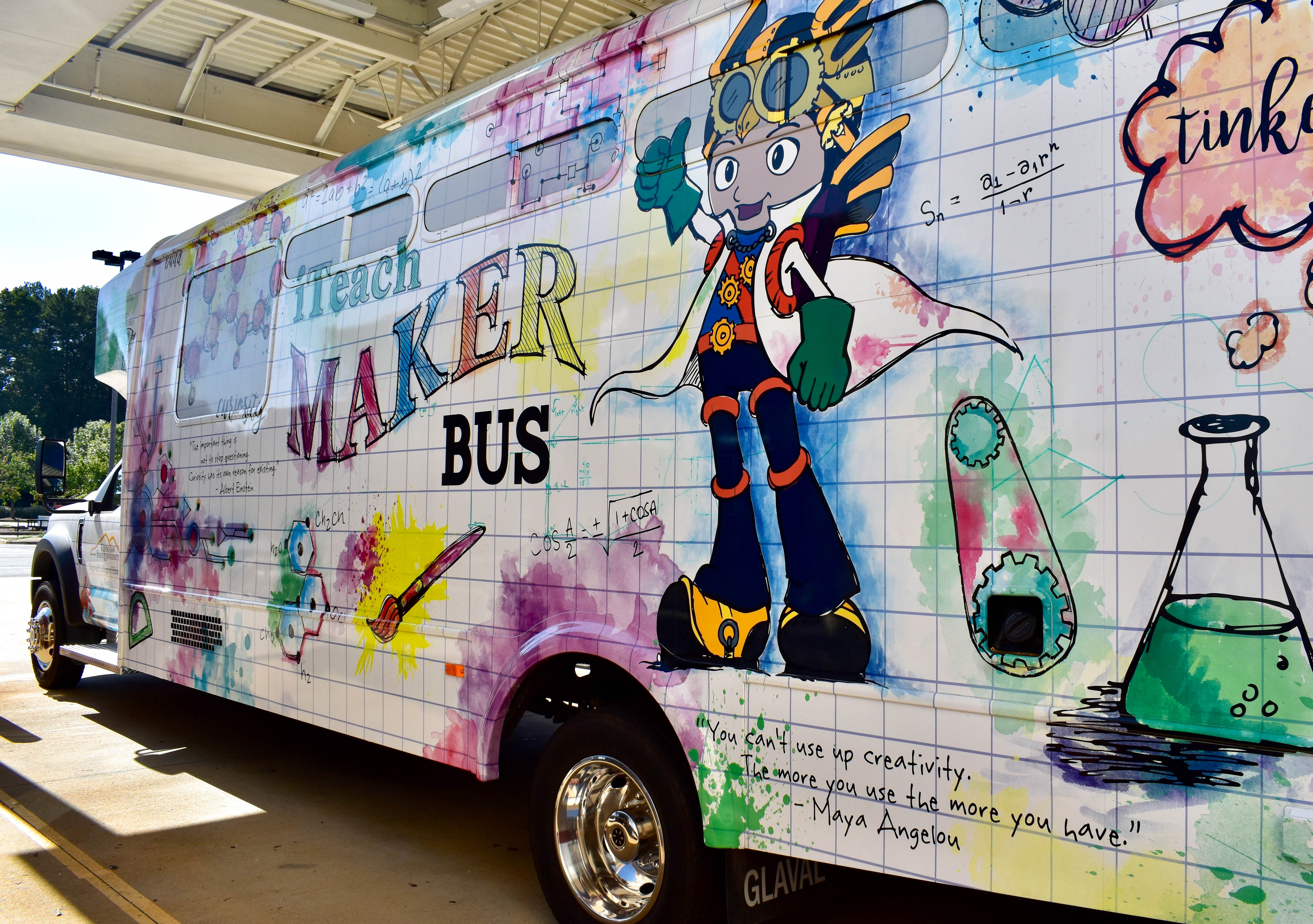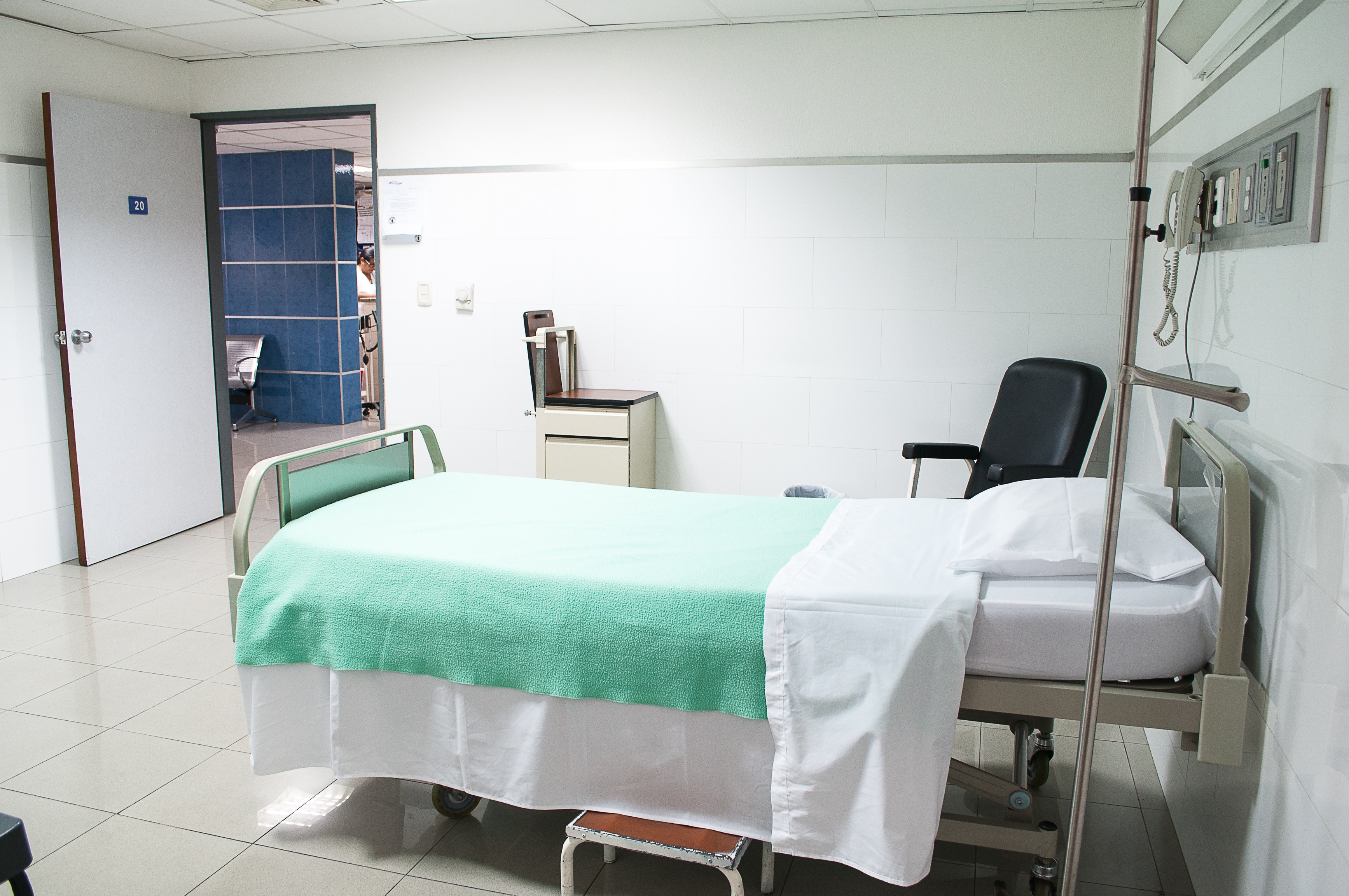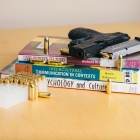The Kennesaw State Bagwell College of Education‘s mobile classroom and technology lab for K-12 students continues to tour the region and provide space for personalized learning.
Part of Bagwell College’s iTeach unit, the iTeach MakerBus was originally launched in April 2018, according to KSU News. The program has grown to support the Maker Movement, an approach to education that emphasizes hands-on, often collaborative, learning experiences to solve problems.
Leigh Martin is an education technology specialist in the Bagwell College and serves as the project lead for the iTeach MakerBus.
“I don’t think we had any idea how successful it was going to be, Martin said. “We had no idea the people would recognize it the way they have, so that’s definitely changed our perspective and our staffing perspective on the MakerBus. The success of it has been exciting and a little bit surprising.”
Everyone in the iTeach department is part of the MakerBus staff now, Martin said, and she emphasized how the bus is a solid team effort from everyone.
“They jump right in and they help with covering events, they help us design activities, they come up with ideas,” she added. “That’s basically how we’ve responded to this success — by welcoming them in. We’re overwhelmed by the amount of help and support that they give us.”
The iTeach MakerBus now consists of 40 members, ranging from support to instructional technology and personalized learning coaches that travel to schools all over Georgia.
Most recently, the MakerBus visited Holly Springs Elementary School in Douglas County Friday, Sept. 20.
At each event, there are pre-planned stations set up on and off the bus for students to engage in.
“We have a laser cutter, we have a 3D printer, we have construction tools and materials there,” Martin said. “We have a lot of different educational technology tools, but we also have just about every crafting item that you could ask for on the bus. We use it all in different ways.”
The bus’s tools can be changed to accommodate different schools and grade levels, according to KSU News.
“We consider the MakerBus an experience rather than a place or just a thing,” Martin said.
Martin said with the help of Luke Ziegler, each event is customized based on the population being served or the K-12 teacher’s idea and curriculum.
“Just about every event we do is an original — either based on the population at the school that we’re serving or an idea that the teacher has or a curriculum topic that the teacher would like to cover,” Martin said. “We design everything we do.”
The ideas are primarily from Martin and Ziegler, but Martin praises the rest of the team for always helping out with ideas and execution.
“We’re very lucky to have the support of so many creative educators on our team,” Martin said.
Martin said each event tries to include a project-based activity, called “Making to Serve,” which consists of helping students create something to give to others.
Previous Making to Serve projects include making origami hearts for veterans’ hospitals, teddy bears to comfort kids who may be in trauma situations or kindergarteners having a hard time on the first day of school, Martin said.
“It’s one of our passion projects where we try to have the kids make something that is for somebody else … so that they can serve others and understand that making can help others,” Martin said.
The bus travels to area schools to expose students and teachers to some of the technology and instruct them on how to utilize it in the classroom.
“This hands-on education, the movement toward maker ed and personalized learning, is so important. One bus isn’t going to do it — it has to be in the classrooms, it has to be in teacher education programs, it has to be on our minds and in our schedule and in our plans.”
Future goals of the MakerBus include spreading the area the bus visits, as the bus currently only spans a 100-mile radius, with a few outliers, Martin said. She also mentioned potential help from KSU students in the future.
In January, the team will attend a conference in Florida in support of technology integration and personalized learning.
“It makes sense for kids to have this kind of education, Martin said. “We want them to communicate and collaborate with each other, but we’re [currently] asking them to sit at desks and do independent works — that’s not going to help. This will help them with skills that workplaces want … and that’s what maker ed helps support and helps build.”



